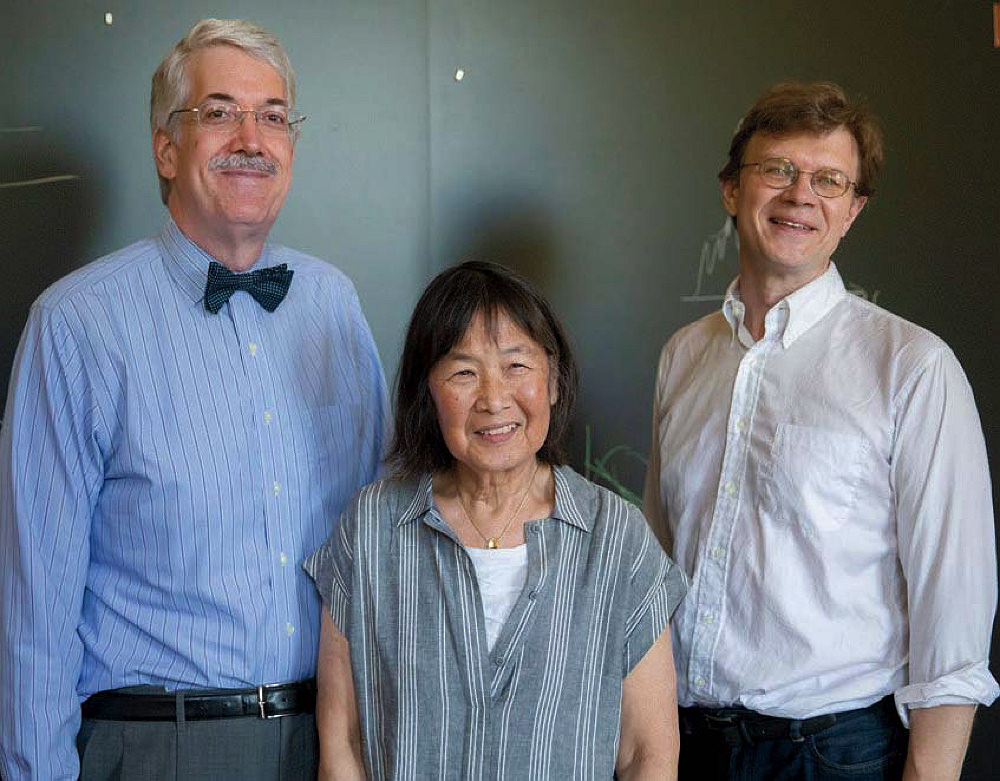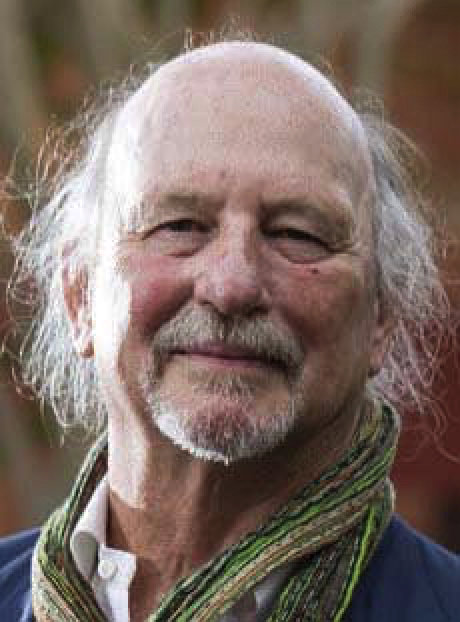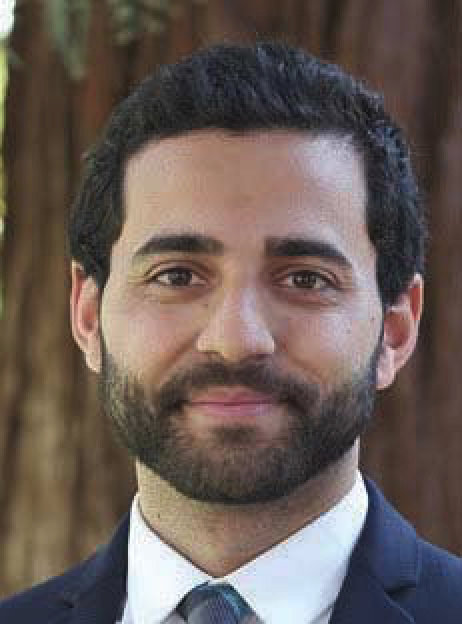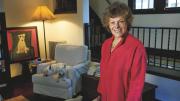Town and Gown
The section on capital projects in the 2020 edition of Harvard’s annual “Town Gown Report” to the City of Cambridge—in recent years chock-full of construction work planned or in progress, thanks to The Harvard Campaign and continuing programs like House renewal—suddenly reflects a far narrower pipeline. Beyond the second and third stages of the Adams House renewal, nothing is on the horizon. This reflects both Harvard’s rotation toward Allston and the severe reduction in capital spending in response to the pandemic’s financial impact. The Eliot and Kirkland House renewals now look unlikely before late in the decade. Similarly, the projection of faculty members based in Cambridge—shown in the 2019 report as 2,100 to 2,200 for the year 2024—is now 2,000 to 2,200 for 2025. There is no change in full-time equivalents, but the lower midpoint overall may reflect both relocating engineering and applied sciences professors to Allston and new, financial limits on non-ladder positions and ladder-faculty growth.
Election Consequences
In September 2020, the U.S. Department of Education announced that it would investigate Princeton for violating federal anti-discrimination laws, citing the university’s decision to address the effects of systematic racism on campus. Princeton president Christopher L. Eisgruber noted in his February state of the university letter that the DOE “took no substantial action on its bogus ‘investigation’ except to close it as the Trump administration left office.”…Separately, Yale announced that the Department of Justice had dropped its lawsuit challenging that institution’s undergraduate admissions as discriminating against Asian American and white applicants. Students for Fair Admissions, which hopes to pursue its similar litigation against the College before the Supreme Court (see “Admissions Litigation,” page 24), promptly filed a comparable case against Yale.
Catalog under “Noncitizen”
The Harvard Gazette reports that the Harvard Library has removed the “illegal alien” subject heading in its collection descriptions, departing from the Library of Congress’s practice. Reasoning that actions can be illegal but people cannot, the libraries now categorize the 8,000-plus affected items with the subject headings “noncitizen” or “undocumented immigrant.”
Quantum State

The faculty directors of Harvard’s quantum initiative (from left): John Doyle, Evelyn Hu, and Mikhail Lukin
The University’s quantum-science initiative (see harvardmag.com/quantum-sci-18) took a significant step forward in early March, when Tarr-Coyne professor of applied physics and of electrical engineering Evelyn Hu and Silsbee professor of physics John Doyle brought a proposed Ph.D. program in quantum science and engineering before the Faculty of Arts and Sciences. It melds physics, applied physics, electrical engineering, chemistry, and computer science in a new discipline, with new courses, matriculating a half-dozen doctoral students annually—and even including a couple of new faculty members, now being recruited to join the 40 or so professors who already work in these fields. A joint FAS-School of Engineering and Applied Sciences program, it was scheduled for a vote at the April 6 FAS meeting. Doyle and Hu, together with Leverett professor of physics Mikhail Lukin, have become the initiative’s faculty directors.
Culture Change
Sherri Ann Charleston, the University’s chief diversity and inclusion officer, has announced that the Harvard Culture Lab Innovation Fund—formed to encourage ideas that “seek to strengthen Harvard’s capacity to advance a culture of belonging”—initiated a round of grants to student, staff, faculty, and postdoctoral applicants for proposals that address issues of “racial justice, mental health, and community-building.”
On Other Campuses
As Yale pushes toward the public announcement of a capital campaign, expected this fall, it has disclosed a naming gift from alumnus Joseph C. Tsai, co-founder of Alibaba Group, and his wife, Clara Wu Tsai, for a neuroscience institute spanning psychology, biology, and computational science. Separately, the Daily News reported that the university is advancing the funds for a nearly $500-million physical-sciences and engineering building, underpinning its plans to recruit faculty in those fields.…Jerome J. Richardson, past owner of the Carolina Panthers football team, gave Wofford College, his alma mater, $150 million to endow financial aid and off-campus study experiences—and, unusually, to fund building maintenance and repair, and boost the minimum wage of support-staff members to $15 per hour.
From MOOC to IPO
Coursera, the Stanford-originated competitor to edX (a Harvard-MIT creation) in the business, originally, of disseminating massive open online courses (MOOCs), has filed for an initial public offering of stock. Coursera was established as a for-profit enterprise; edX is a nonprofit consortium of member universities and colleges. Both now disseminate courses, and host online degree programs. Coursera has a significant business in online corporate and institutional courses. Its filings show revenue of nearly $300 million in 2020—up 59 percent from the prior year, as pandemic-induced idleness encouraged online learning everywhere (see “Online Takes Off,” March-April, page 14)—and a net loss of $67 million. It claims a network of 77 million learners worldwide.
HMC 2.0
When N.P. Narvekar became chief executive of Harvard Management Company in late 2016, he projected a five-year restructuring of personnel, strategy, and operations. HMC moved from a large staff investing several categories of assets in-house to a small cohort of generalist professionals overseeing the assets as a whole, with essentially all funds invested by external managers. In a status report released this January, he declared “a conclusion to the restructuring” as of last October, when the natural-resources investments team was spun out of the organization—the fifth in a series of such moves to outsource specialists and the associated assets. Harvard treasurer Paul J. Finnegan, HMC’s board chair, noted that performance during the past two fiscal years was strong (an annualized rate of return of 6.9 percent), despite any distractions from the transition.
Admissions Equity
Stanford’s Faculty Senate approved two proposals aimed at reshaping admissions. One urges that the undergraduate application include information on advisers who helped read or shape an application, and their relationship with the applicant, to expose any influence of financial resources (use of consultants, for example) on the materials Stanford reviews. The other calls for enhanced communication about admissions, to reduce disparities among prospective applicants with varying access to resources such as private admissions counselors.
Nota Bene
Notable engineers. Newly elected members of the National Academy of Engineering include Francis J. Doyle III, Armstrong professor and dean of the Harvard Paulson School of Engineering and Applied Sciences; William W. Hogan, Plank research professor of global energy policy; and Donald E. Ingber, professor of bioengineering and director of the Wyss Institute for Biologically Inspired Engineering.
To the other cambridge. Meena Venkataramanan ’21, a Harvard Magazine Ledecky Undergraduate Fellow this academic year, is one of 24 Gates Cambridge Scholars from the United States chosen for graduate study at the University of Cambridge. This is the twentieth year of the program, established in October 2000 by a gift from the Bill [’77, LL.D. ’07] and Melinda Gates Foundation.
Special scientists. The Howard Hughes Medical Institute has announced its new cohort of Hanna Gray Fellows: early-career researchers, each of whom it will support with up to $1.4 million during the next eight years. Among the 21 promising scientists are these affiliates—another sign of the powerful Harvard-Greater Boston presence in life sciences: James R. Allen, a research fellow in pathology at Massachusetts General Hospital; María Angélica Bravo Núñez, a postdoctoral fellow in the laboratory of Smith professor of molecular genetics Andrew Murray; Ava Carter ’13, a research fellow in neurobiology at Harvard Medical School; Morgan Gilman, an HMS research fellow in biological chemistry and molecular pharmacology; Kalli Kappel, of the Broad Institute; and Zuri Sullivan ’12, a postdoctoral fellow in molecular and cellular biology.

Thomas B.F. Cummins
Photograph by Roberto Rojas
Dumbarton director. Thomas B.F. Cummins, Dumbarton Oaks professor of the history of pre-Columbian and Colonial art, has been appointed director of Dumbarton Oaks, the center for Byzantine, pre-Columbian, and landscape studies, in Washington, D.C. (see “Home of the Humanities,” May-June 2008). He had been interim director, succeeding Porter professor of medieval Latin Jan M. Ziolkowski, who served for 13 years.
Science simplified. The torrent of information about the coronavirus has underscored the importance of keeping up with often-abstruse scientific research. Medical School postdoc Alen Juginovic´ and colleagues have created a utility for digesting current papers (“nutshells”), and disseminating interviews with experts. Although conceived as a community of collaborating enthusiasts, it works as a public service. Partake at www.hotscienceballoon.com.
Law and equality. Klein professor of law Randall L. Kennedy, 300th Anniversary University Professor Martha Minow, and Walmsley University Professor Cass R. Sunstein have founded The American Journal of Law and Equality, to be published by MIT Press. The co-editors plan annual coverage of civil rights and the criminal-justice system, plus environmental safety and health, and tax aspects of legal equality.

Hassaan Shahawy
Photograph courtesy of
Hassaan Shahawy
Miscellany. Nigerian economist Ngozi Okonjo-Iweala ’77 (Ph.D. ’81, MIT), has been appointed director-general of the World Trade Organization, the first woman and first African to hold that office.…Hassaan Shahawy ’16, who was a Rhodes Scholar before enrolling at the Law School, has been elected the 135th president of the Harvard Law Review—the first Muslim to serve in that role.…Vincent D. Rougeau, J.D. ’88, dean of Boston College Law School, has been elected the first lay and first African American president of the College of the Holy Cross, in Worcester.…During 2020, the Chronicle of Higher Education reports, colleges and universities shed 650,000 employees: 13 percent of their jobs, the sharpest contraction since the federal government began keeping tallies by sector more than half a century ago.…Setti D. Warren, previously executive director of the Shorenstein Center on Media, Politics, and Public Policy, has been appointed executive director of the Institute of Politics, both at the Kennedy School.









